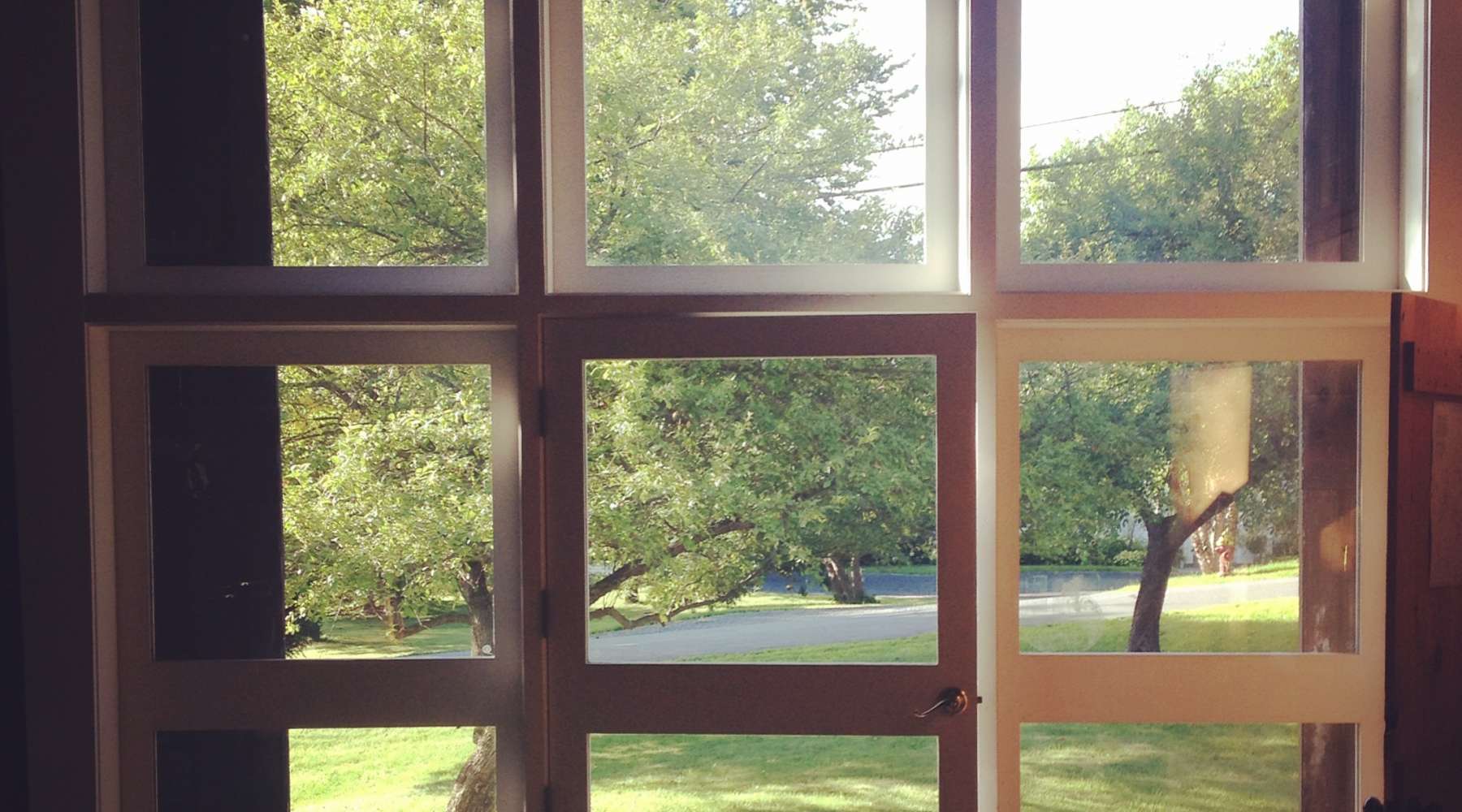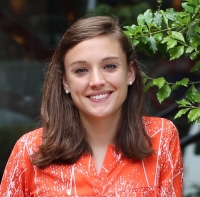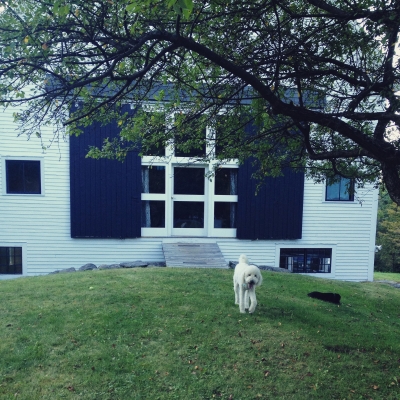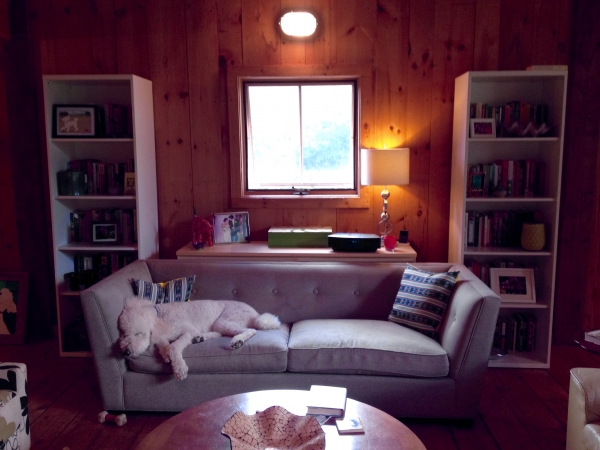
 By Sarah Allin TP'17
By Sarah Allin TP'17
Sarah is a fellow at the Government Performance Lab at the Harvard Kennedy School. Her husband, Tom, is a T’17, and they live in Norwich, Vermont with their three-year-old standard poodle, Charlie. You can email her any questions at sarah_allin@hks.harvard.edu.
A usual weekday morning in our household goes something like this: Tom’s alarm begins buzzing around 6:00 a.m. He heads downstairs to make coffee, and Charlie, our standard poodle, sneaks into Tom’s place on the bed. Around 7:00 a.m. I begrudgingly part with my covers to get ready for work. Ten minutes later, with coffee in hand, I step into my “office” and open my computer.
My office is a bit different than most people in the Upper Valley—or anywhere for that matter. Tom and I live in a large, converted barn, and I do my work remotely from our dining room table. In between participating in conference calls and crafting emails, I watch hikers on the Appalachian Trail passing our barn (our road is literally the AT) and neighborhood kids playing basketball in our driveway.
If it sounds like I’m in love with our life in the Hanover/Norwich area, that’s because I am. But—like many partners—I wasn’t always enamored with the uncertainty that surrounded the MBA admissions and decision-making process.
What program was Tom going to decide on? Where were we going to live? How was I going to financially support our family? Was I going to find a job that also meaningfully advanced my career?
No matter where you and your partner decide is the best fit for an MBA journey, these questions come up. Building a new network and understanding the job landscape is as large a need in urban areas as more rural ones, like Hanover. Your job search process may require just as much energy and attention  as your partner’s MBA application process, and Tuck’s more rural location may make this particularly true.
as your partner’s MBA application process, and Tuck’s more rural location may make this particularly true.
When Tom decided Tuck was the best fit for him, I pursued both local and remote employment options. My interests are in supporting state and local governments, so I started by reaching out to departments and centers on Dartmouth’s campus to learn more about their work. I also set up a series of phone calls with nonprofits in both Vermont and New Hampshire, and even traveled to Concord, New Hampshire to explore some opportunities that would have required commuting daily.
With time, I also started to think more creatively about what meaningful work could look like for me. I decided that I didn’t necessarily need to report to an organization each day, and that I was open to working remotely. This allowed me to broaden my job search, and I started reaching out to organizations in the Boston area as well.
Luckily, the Government Performance Lab at the Harvard Kennedy School was open to bringing me on as a full-time team member even though I was based in Vermont. As a fellow, I oversee technical support for GPL projects with New York State and a community in Kentucky. I travel three to four days a month, while working most days from our barn. I love that I get to travel some, work from home, and maintain lots of flexibility in my schedule.
Working from home is not for everyone. Some individuals want to engage with colleagues in person, and many individuals (teachers, nurses, counselors) may not have the option of working remotely. However, given my dual desires to build a life as an active member of the Tuck community and advance my own career focused on state and local governments, working remotely made the most sense. So, for the next two years, you’ll find me sipping coffee in the corner of a barn while quietly sending emails.
I’m grateful Tom chose Tuck. I work in a place surrounded by natural beauty which is full of community. But I’m also grateful because the job search process allowed me to think in a more innovative way about my career and the value I could bring to an organization through remote work.
No matter where you and your partner end up on the MBA journey, I hope you will also use the transition as an opportunity to start thinking creatively about what your ideal work environment looks like and start taking steps to bring your vision closer to reality.
